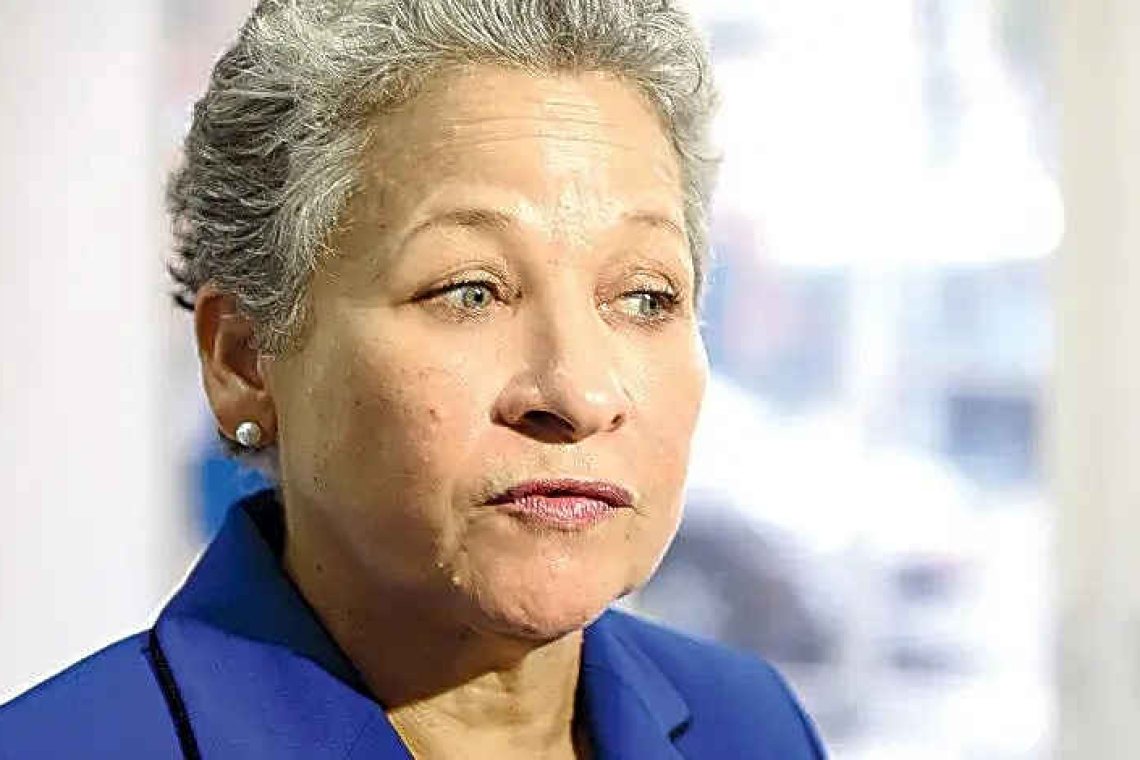Glenys Hanna-Martin.
NASSAU, The Bahamas--Pointing to the severe impacts caused by the coronavirus COVID-19 pandemic on learning in the country, Minister of Education Glenys Hanna-Martin said on Sunday night that targeted, personalised and sustained intervention will be implemented for students to help close the gaps.
In her back to school message, which was televised and streamed on social media, Hanna-Martin said 40,000 public school students, at all levels, were tested as part of government’s learning loss study. The data showed that 44% of students need intervention.
“This is a significant finding which requires intense and sustained interventions for all students affected,” she said.
“Remediation efforts by the ministry started as early as May of this year in some schools, with ongoing assessments being completed to mitigate gaps and foster solutions. The ministry will provide personalised, self-paced, targeted support to address the learning gaps. We will also provide training for parents so they can assist children at home.
“Students will be pulled out of classes for an hour every day for literacy and numeracy sessions. I urge parents to position themselves on the front line of their children’s education, closely monitor their progress and interact more with their teachers.
“On our part, we will do all that is necessary to help your children, our children, recover and catch up, stabilise and get back on track. I am confident that with all hands on deck, our children will, with resiliency, overcome these obstacles.”
Hanna-Martin said curriculum reform is also underway.
“Beginning this year and for all grade one students, the first term will be concentrated on literacy and numeracy solely,” she said.
“This is to ensure that the curriculum at the lower primary level is realigned to meet the critical needs of students to promote mastery of foundational skills. We will monitor the performance of every student with a view of providing targeted support.
“Every child counts and no child will be left behind.”
Further, more focus will be placed on special education, she said.
“I am proud that we are bringing equitable focus to our children with special needs,” Hanna-Martin said.
“This year, the ministry has designated classrooms in schools nationwide for the integration of children with special needs. This has enabled us to eliminate a waiting list for placement of students with special needs. Twenty-two new special education teachers have been recruited and are now being posted in schools throughout the country.
“An additional 14 teachers are near completion of the master’s degree programme in special education with Barry University as a result of an [memorandum of understanding – Ed.] MOU between the ministry and that university. Some of the teachers posted will start self-contained programmes where the need exists. This year, the ministry has also recruited more speech pathologists, guidance counsellors and school psychologists to give support to our students and to help them progress and thrive.”
Schools in The Bahamas adopted virtual learning after The Bahamas was hit with the COVID-19 pandemic in March 2020. Officials said the average district attendance of students on New Providence at that time was “a mere 54%”.
Many of the students could not or did not access the virtual platform for a variety of reasons. When face-to-face classes resumed, it was clear that there were gaps in what students should know and what they knew, officials said.
Teachers and school leaders observed knowledge gaps, skills gaps, motivation gaps, and environmental gaps and called for intervention.
A 2022 World Bank-UNICEF report, “Two Years After: Saving a Generation”, found that about four in five sixth graders in Latin America and the Caribbean are expected to lack basic reading comprehension proficiency. It found that learning losses “could cost today’s students in the region a 12% decrease in lifetime earnings”.
Hanna-Martin said on Sunday night that it is important for The Bahamas to know the full extent of learning gaps caused by the pandemic.
“All of the research globally, in both developed and developing countries, has shown massive learning loss suffered by students at all levels, but with children from poorer communities being hardest hit,” she said.
“These countries are themselves grappling with how to redress these deficits. It was mandatory that The Bahamas have a full understanding of how our own children and young people have been affected so as to stave off what has been forecasted as being potentially catastrophic to many young people all over the world and to their respective countries.”
The minister said the ministry will fight for children in the country and not accept mediocrity.
“We believe in our young people and have high expectations of their success,” she said.
She praised teachers across the country for their hard work and determination. ~ The Nassau Guardian ~







